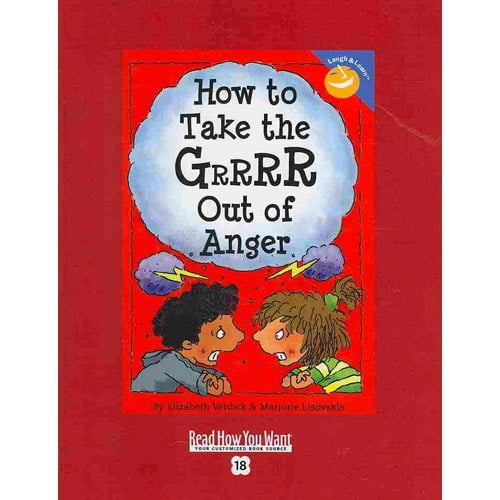How to make child feel secure
10 Ways to Make Your Child Feel Secure
Recently I took my kids to a theme park. Thinking my six-year-old daughter was ready for roller coasters, I brought her on one with me. She wasn’t ready. From the moment we clicked our seat belts, she was terrified. So I threw my arms around her and told her I had her. I kept repeating those words throughout the ride and told her she was safe with me.
One of the key jobs for a parent is to create a safe and stable environment for the kids. When they feel safe, they have the freedom to grow, test boundaries, and explore. Otherwise, they are consumed by fear and anxiety. Here are 10 ways to make your children feel secure.
1. Give your time.
The most important aspect of having children who feel secure is giving them your time—real-time talking, sharing, laughing, and learning. Time equals security.
2. Give affection.
Children need affection from a father as much as (if not more than) from their mother. A gentle hug, a kiss on the forehead, or holding hands as you walk together shows kids you love them. In regards to child development, affection makes a world of difference.
3. Praise them.
When we praise our children, we build their self-esteem and self-worth. When it’s warranted, always be sure to praise them loudly and proudly. Your verbal encouragement will provide the security they require to flourish.
4. Consistently hold boundaries.
Children test limits repeatedly. When you enforce boundaries, you make them feel secure. It’s like double-checking a locked door—you know it’s locked, but checking again makes you feel safer. Being consistent shows your children that you care for them deeply.
5. Listen to them.
Your kids have a lot to say to you, and when they’re talking, make sure that you’re all ears.
Your kids have a lot to say to you, and when they’re talking, make sure that you’re all ears. Even during those times of just nonsense, you can learn so much about who they are and who they’ll become. Your kids need to feel secure talking to you about anything under the sun.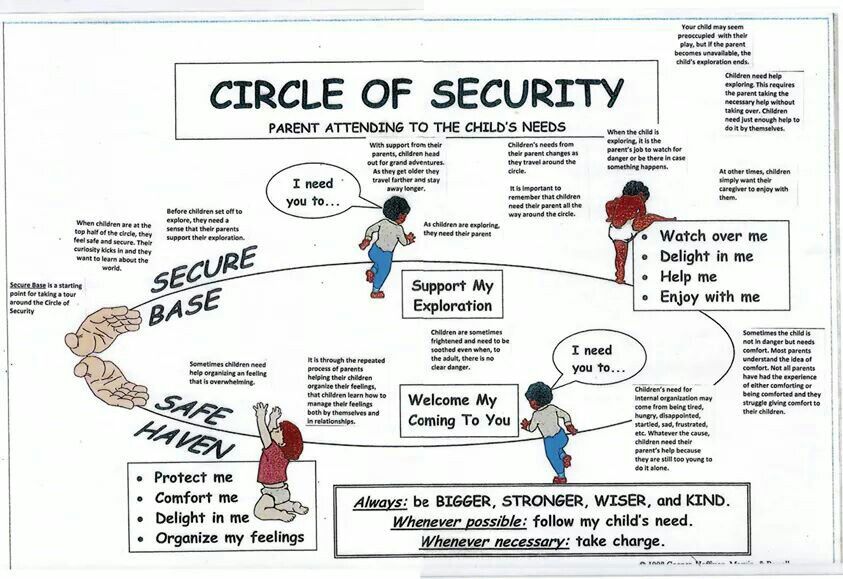 That level of trust benefits everyone involved.
That level of trust benefits everyone involved.
6. Let the good times roll.
Laughter is the cure to many troubles in this world. Be open, funny, and kind to your children. Play with them. Joke with them. Just be downright silly. Child behavior is influenced by the behavior of parents. Provide them with a happy and loving home, filled with laughter and joy.
7. Honor and hone their talents.
We are all blessed with special gifts and talents to offer the world. Our children need to know that we love them for exactly who they are. Look for the things your child is good at and help him or her develop them.
8. Provide balance.
Find an appropriate balance between justice and mercy. When your children do the wrong thing, correct them by giving a punishment or consequence. However, children also need to experience mercy. They need to know that all of us mess up, but there is always forgiveness.
9. Give them unconditional love.
When children fail, Dad needs to be there to offer a strong hand to pick them up, dust them off, give them a hug, and start all over again. That is an example of unconditional love. They should know without question that, no matter what happens, you will love them.
That is an example of unconditional love. They should know without question that, no matter what happens, you will love them.
10. Acknowledge a greater purpose.
“The family that prays together stays together.” I believe there is great security in knowing that we have a higher and greater purpose on Earth, knowing that our Creator loves us and made us for a reason. So, in your parenting, be sure to feed your kids’ souls.
Sound off: How do you make your kids feel secure?
Three Ways to Raise Secure Children
One of the most important qualities you want to instill in your children is a deep sense of security in themselves and the world. There are three messages you want your children to get to nurture their developing sense of security.
- Others: There are people in my world who will protect me when needed.
- Self: I am master of all that is me (body, mind, spirit) and am capable of taking care of myself.
- World: The world is a safe place that I can explore with confidence and free from fear.

I will explore #1 today and the other two in subsequent posts.
Build Trust
The first message of security involves your children feeling securely attached to you. The operative word with attachment is trust. Simply put, secure attachment develops in children who learn that they can rely on their parents to meet their physical and emotional needs. When they are cold, hungry, or thirsty, they know you are there to provide them with warmth and sustenance. When they are scared, sad, or lonely, they can turn to you for comfort.
This attachment isn't just important for you and your children to develop healthy relationships. The perceptions they develop about their relationship with you, the emotions they feel toward and from you, and the experiences your children have with you become the template for relationships that they will develop in the future.
Imagine children who grow up without that attachment, trust, and sense of security. They learn that others can't be trusted to care for them.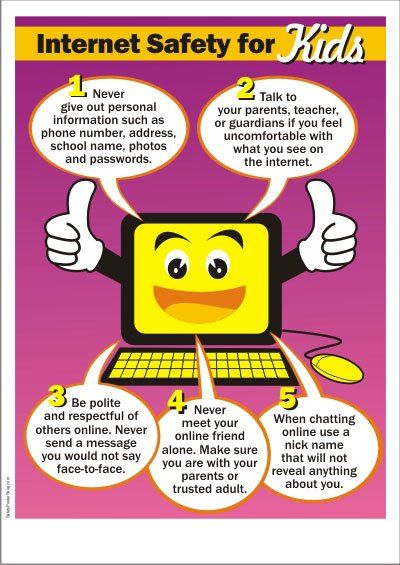 Such a world view would have a profoundly negative impact on every aspect of their future lives, including how they come to see themselves and their emotional life, relationships, and strivings. Who they would ultimately become and what they would eventually do would emerge from this dark place of doubt, fear, and need. Children with insecure attachment experience significant separation anxiety when parents leave, yet find little comfort when the parent returns. They are often described as needy and clingy by teachers and other caregivers. In adulthood, they fear intimacy, have difficulty expressing their emotions, lack trust in their intimate relationships, and take rejection badly.
Such a world view would have a profoundly negative impact on every aspect of their future lives, including how they come to see themselves and their emotional life, relationships, and strivings. Who they would ultimately become and what they would eventually do would emerge from this dark place of doubt, fear, and need. Children with insecure attachment experience significant separation anxiety when parents leave, yet find little comfort when the parent returns. They are often described as needy and clingy by teachers and other caregivers. In adulthood, they fear intimacy, have difficulty expressing their emotions, lack trust in their intimate relationships, and take rejection badly.
Now consider children who are raised with a strong feeling of attachment with their parents. They come to view their parents as safe, friendly, and predictable people who they can count on to meet their needs. The view of relationships that they would subsequently develop would be one of comfort, interest, and opportunity. Securely attached children separated from their parents with ease and welcomed them back with enthusiasm, and were readily calmed by parents when frightened. In adulthood, these children had generally high self-esteem, were socially competent, able to establish and maintain intimate relationships, and emotionally expressive.
Securely attached children separated from their parents with ease and welcomed them back with enthusiasm, and were readily calmed by parents when frightened. In adulthood, these children had generally high self-esteem, were socially competent, able to establish and maintain intimate relationships, and emotionally expressive.
Recognize Your Children’s Uniqueness
Children have distinctive temperaments, moods, emotional styles, and needs. They also send messages in different ways to alert you to their specific needs. You need to learn your children's personalities and the particular messages they send about their needs.
An essential way to build the trust that underlies secure attachment is to interact with your children in ways that are consistent with those unique attributes and messages. If they are shy, you provide them with comfort in social situations. If they are risk-takers, you provide reasonable limits to ensure their safety. By doing so, you respond to their needs in ways that are most meaningful and comforting to them.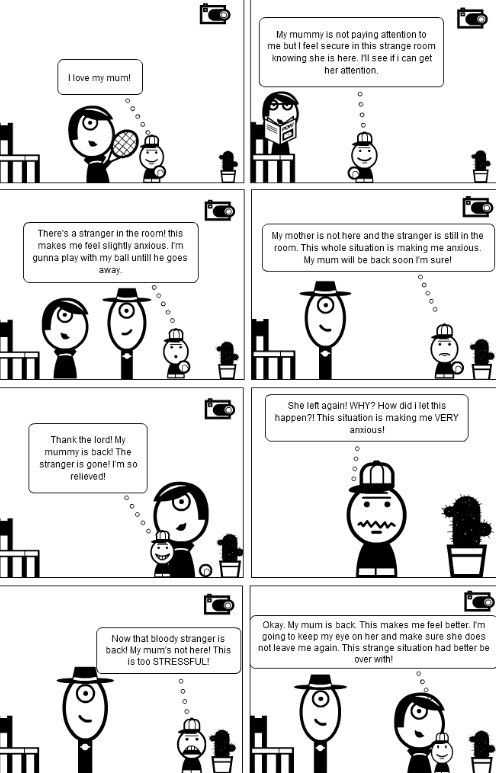 This congruence between your children's needs and your responsiveness sends a powerful message that you understand them and can give them what they need in the way that they need it. Their recognition of your understanding acts as the foundation for that trust and secure attachment. In contrast, when you respond to your children's needs in ways that are out of sync with who they are, their deepest needs are not met and they feel misunderstood, disconnected, and unvalued.
This congruence between your children's needs and your responsiveness sends a powerful message that you understand them and can give them what they need in the way that they need it. Their recognition of your understanding acts as the foundation for that trust and secure attachment. In contrast, when you respond to your children's needs in ways that are out of sync with who they are, their deepest needs are not met and they feel misunderstood, disconnected, and unvalued.
Be Consistent
The importance of consistency is especially true for establishing secure attachment because your children's trust in you is based on you creating a consistent and predictable world around them. The dangers of inconsistency in attachment behavior is evidenced by what is called disorganized attachment. Children with disorganized attachment demonstrate no clear pattern of attachment behavior, sometimes approaching, other times avoiding, and still other times resisting their parents. They often appear to be disoriented and anxious. Inconsistent responsiveness by parents may contribute to disorganized attachment, for example, quick to respond at one time, but neglectful the next, or loving and supportive at one turn and angry and critical at another. With these mixed messages, children can't predict if, when, or how their parents will respond, creating a state of mistrust, detachment, and insecurity.
They often appear to be disoriented and anxious. Inconsistent responsiveness by parents may contribute to disorganized attachment, for example, quick to respond at one time, but neglectful the next, or loving and supportive at one turn and angry and critical at another. With these mixed messages, children can't predict if, when, or how their parents will respond, creating a state of mistrust, detachment, and insecurity.
When your children see you as consistent in your emotions, behavior, and reactions, you enable them to see you, relationships in general, and the world as predictable and, to a greater degree, controllable. This experience of consistency makes them feel more comfortable and less threatened, resulting in a strong sense of security that will generalize to all aspects of their lives.
This post is excerpted from my third parenting book, Your Children are Listening: Nine Messages They Need to Hear from You (The Experiment Publishing, 2011).
How to develop a sense of security in a child
Information and methodological material on the topic: "How to develop a sense of security in a child.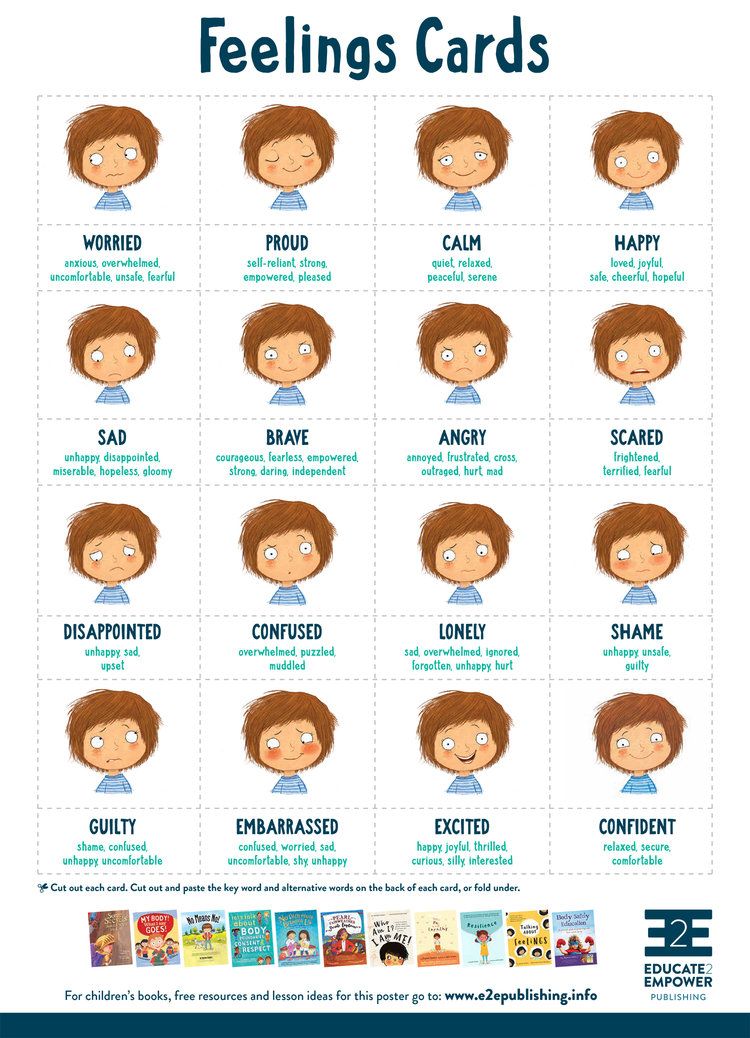 "
"
A sense of security is an essential need for a child to develop fully. When the baby feels safe, he gains confidence in his abilities, fear and excitement go away. Children who feel a safe environment are able to take responsibility for their own actions and be responsible. How can you develop a sense of security in your child?
The atmosphere in the house.
The foundations for a child's sense of security are laid in the family. The child should feel comfortable at home, both emotionally and physically. Let a friendly atmosphere always reign in you, where each of the adults is ready to listen and understand the child at any moment. The kid should feel loved, needed, when he is trusted and respected for his opinion. After all, a child will be able to fully develop and learn in a family devoid of stress and unpleasant unrest. Another important point: a sense of security comes when the baby knows what to expect from parents, can anticipate various events and situations.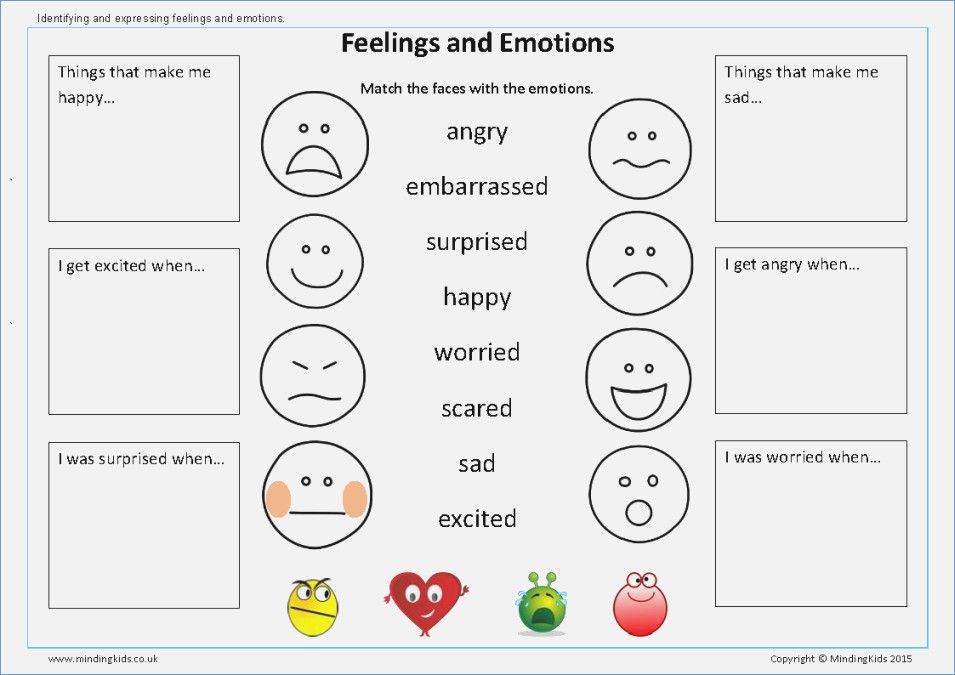 By developing trust in the family, your toddler will learn to trust others.
By developing trust in the family, your toddler will learn to trust others.
Be consistent.
If you make a promise to a child, always try to keep it. When an adult keeps his word, he, as it were, makes it clear to the baby that the world around him is stable and durable, he does not need to be afraid. By trusting mom and dad, the baby strengthens trust in others.
Established rules discipline.
Some rules must be agreed in the family. Even more likely, not the rules, but the instructions that the child will be guided by when he finds himself in an unfamiliar situation. For example, by stipulating that it is impossible to take other people's things without asking, only with the permission of their owner, we show that we respect the property of another.
Our little secret.
Trust your child with little “secrets”. Let him feel his importance and learn to keep secrets.
The main thing is love.
Always show your child that you love him. Let him know that, no matter what, the baby will not lose your love, even when he is guilty. By creating a solid foundation of love, you increase your baby's sense of security, relieve tension and fear of punishment.
Form rules in a positive way.
When formulating rules, start from the positive moment. Prohibitions, as such, do not have much effect. It is much better to define the boundaries of the desired behavior. For example, instead of the prohibition "do not eat candy", you can replace the message with "you can eat candy, but only after eating." The child must clearly understand what adults want from him. This will develop in him a sense of control over what is happening, giving a good idea of \u200b\u200bhis own personality.
Limits of what is permitted.
Let your child clearly understand the limits of what is permitted. To feel safe, the baby must understand what behavior adults consider acceptable and what is not.
We don't disagree.
In order not to lose parental authority in the eyes of the child, always be unanimous in your opinion with your soul mate about the acceptable behavior of the child.
The daily routine is necessary.
A clear structure in doing homework or getting ready for school can help you feel more secure. If the rules are clearly defined in the family, the child does not need to be constantly reminded of something, causing his irritation. A system of actions that works day in and day out will give the baby a sense of responsibility.
Discussion.
The rules in your family must be discussed with the child, including the consequences for breaking them. When mutual understanding is achieved, the child is ready to follow instructions with greater willingness and responsibility than when they are given by order.
Prepared by:
educator
Belyaeva O. A.
Your name *
Your email address *
Your child's age
Selection list * Choose a specialistTeacher-psychologistTeacher-defectologistTeacher-speech therapistEducatorInstructor for FC
Time selection list * Select Service Time Select the service delivery format In-person (at the Service) In-person (on-site consultation) Remotely
Topic selection list Select the subject of the appeal Age and individual characteristics of the child's development Organization of the educational process Issues of interpersonal communication Accompanying the development, education and upbringing of children with disabilities and disabilities guardians, adoptive parents legal issues related to upbringing and education (including issues of receiving benefits) issues of determining and developing a child’s abilities and thinking issues of computer addiction, the optimal time for a child to interact with a gadget and social networks, and other (specify in the comments)0005
Your question
By clicking the "Send" button, you agree to the processing and storage of personal data in accordance with the privacy policy
18.
18. Make the child feel safe
In order for a child to be alone in bed in the evening, he needs to feel completely safe there.
An inner sense of security is a prerequisite for the happiness of any person. It helps a child to better endure loneliness, to feel more confident, to know that he can cope with difficulties, for example, to chase away monsters that suddenly jump out from under the bed on the darkest nights.
There are many different factors that go into creating this inner sense of security. Here are two of the most important ones.
Set rules and boundaries
For a child to feel secure, he needs his parents to gradually establish certain rules. Even if at first glance these rules seem to the baby to violate his rights and unacceptable, nevertheless they instill confidence in him.
A small child imagines that everyone obeys him, he likes to play himself the boss. However, in the depths of his ears, he is well aware that he is too small in this world of adults. He realizes that he cannot decide anything himself, since he is not familiar with anything in this world. That he "knows everything" is only an appearance.
He feels that needs someone to point him in the right direction, someone who can explain what is good and what is bad. He understands that this is what parents are for.
Rules are also needed in order to clearly define the limits beyond which one cannot overstep. They let the child know that not every whim will be satisfied. It is the parents who have to limit his requests and wishes. They are the guarantors of harmony in the life of the child. They have a lot of experience: they know that two circles on a carousel, three sweets for dessert, or four calls to stop being outrageous is enough. Then they say "enough".
Much more confidence is given to a child by parents who have power over him, who limit him, than by those who constantly say yes to him, whether intentionally or just to leave them alone.
This "strict love" will prevent the child from constantly trying to determine the limits of his power, appearing in the eyes of those around him as a small monster.
Children begin to systematically say “no” for a reason. This happens most often when they are surrounded by permissiveness and stress.
Allowing the child to feel secure
An inner sense of security is necessary for the child to be able to leave his parents and be alone in his room. The formation of this feeling occurs gradually, due to the appropriate behavior of the parents. This shows up in many different situations. For example, parents should explain to their child what is really important for him, teach him to keep his word. If he promised to do something, then he must do it. If something interfered with this, then you should apologize.
However, it is equally important for parents to behave correctly at the very moment of separation from the child. You can not leave the baby without warning and without saying goodbye. Parents sometimes like to just turn around and leave, doing it for good reasons: to avoid unnecessary tears or attempts to delay them. However, from a psychological point of view, such an act can have disastrous consequences. If the child understands that the parents can disappear without his knowledge, if he just takes his eyes off them, then he will follow on their heels and carefully watch so that they do not disappear.
Every time you part with your child, you need to warn him and be sure to promise that you will see each other again soon: “I will leave now and leave you for a while, but I will return from work at six. Have a good day, until the evening." And do your best to really come back by six, for a child this is very important.
The fact that a child sometimes expresses dissatisfaction about being separated from his parents is quite normal, the main thing is that his inner sense of security remains intact. Parents who part with the child with the confidence that nothing bad will happen to him, and remind him that they will see each other again soon, are of great help to the child in developing exactly the same attitude.
This text is an introductory fragment.
What needs to be done and how to behave so that the child is born healthy
What needs to be done and how to behave so that the child is born healthy Necessary consultations with doctors To be sure of the health of your unborn child, not only mom, but also dad needs to undergo some examinations and specialist consultations. And start
Why does the child behave like this
Why is the child acting like this? The main reason for this behavior of the child is the inconsistency and insecurity of the parents. Once, succumbing to the pressure of the child and "yielding" to his tantrums, the parents thereby fixed in his memory the wrong model of behavior.
Why does the child behave like this
Why is the child acting like this? Almost every child at least once in his life took someone else's. Small children do not yet understand what property is, they cannot direct their actions. It is difficult for them to restrain their desires and impulses, they act impulsively: if something
We want the child to "pass" ... But does he want this himself?
We want the child to “pass for five” ... But does he want this himself? Cases when a child who has learned about upcoming, albeit not soon, exams, completely give up, and knowledge completely fly out of his head along with the remnants of interest in learning, are by no means rare. Such a reaction
How to behave as parents to help the child cope with his problem
How to behave as parents to help the child cope with his problem 1. Do not shame the child, do not call him a “coward” and do not force him to overcome his fear, but on the contrary, listen calmly, share your experience and confidence that everything is completely solvable. Than
If a child bites to get attention
If a child bites to get attention The same group of cases also includes the attempt of the baby to acquire his own significance in the family - an attempt to find out where the boundaries are not only of his duties, but also of rights. The main sign of this type of biting is the fact that
Memo for parents, or What to do to make your baby feel comfortable without you
Memo for parents, or What to do to make your baby feel comfortable without you 1. Prepare yourself for going to work and prepare the baby in advance and gradually.2. The person with whom your baby stays is trusted with the most valuable thing, so spare no effort to find
17.
17. Love the child so that he feels more confident To learn how to part, you need to feel that you are loved, and be able to keep this feeling of love within yourself. Going to sleep means first of all separation. However, this parting is different from what
Make it easy to eat
Make it Easy to Eat Simple meals. Be aware that young children have small tummies and less well developed chewing and swallowing skills. Cut food into small pieces that are easy to put in your mouth. From products,
15 Parent Nights: How to get your child to sleep
15 Parent Nights: How to get your child to sleep From what we know about children who sleep well, we have identified the factors that help the child and parents sleep through the night.









